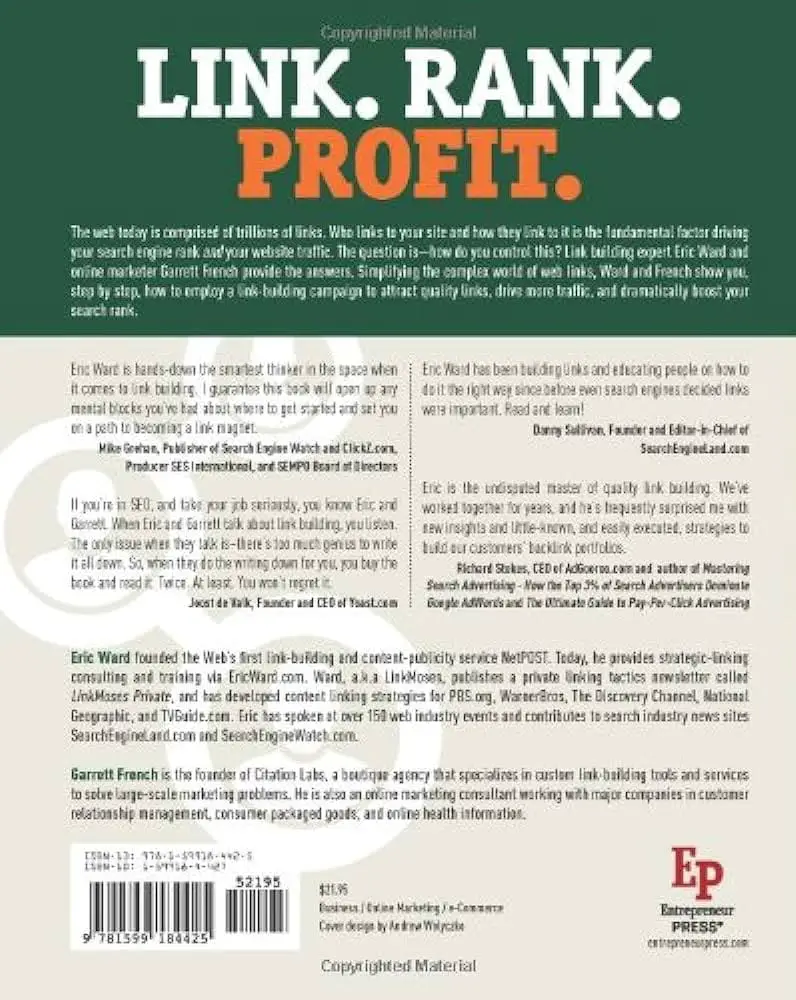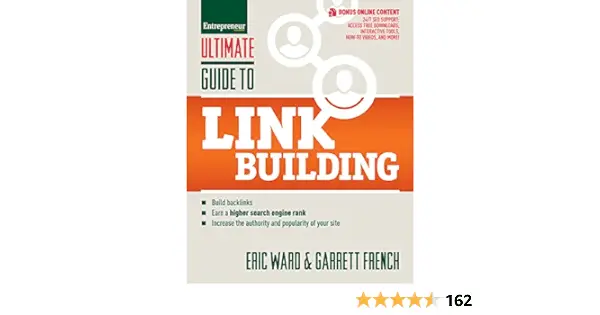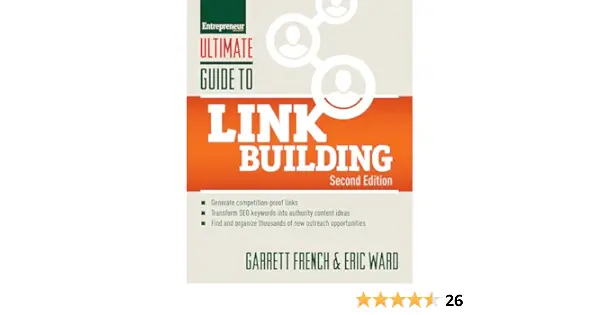In the competitive and ever-growing automotive industry, establishing a strong online presence is essential for suppliers looking to reach a larger audience and expand their business. But how can they effectively build brand visibility and credibility in such a crowded marketplace? Enter the ultimate guide to link building specifically designed for automotive industry suppliers. This comprehensive resource will equip you with the knowledge and strategies to leverage the power of backlinks, improve your website’s authority, and ultimately drive more organic traffic to your business. Whether you’re a seasoned player or just starting out, this guide is your roadmap to success in the digital world of automotive supply.
Understanding the Importance of Link Building for Automotive Industry Suppliers
Link building is a crucial aspect of digital marketing for automotive industry suppliers. It refers to the process of getting other websites to link back to your website. These links are like votes of confidence, indicating to search engines that your website is credible and authoritative. In the highly competitive automotive industry, link building plays a significant role in improving search engine visibility, driving traffic, and boosting brand reputation.

Definition of Link Building
Link building, as mentioned earlier, is the process of acquiring hyperlinks from other websites to your own. These hyperlinks, also known as backlinks, are essentially endorsements from other websites, indicating their trust and recommendation of your content. Search engines such as Google consider these backlinks as a crucial factor when determining your website’s rankings in search results.
Why Link Building is Important for Automotive Industry Suppliers
-
Improved Search Engine Rankings: Link building is a fundamental element of search engine optimization (SEO). When reputable websites link to your content, search engines perceive your website as a trusted source of information, which can result in higher search rankings.
-
Increased Organic Traffic: Backlinks from relevant and authoritative websites can significantly boost your website’s organic traffic. When users click on these links, they are directed to your website, increasing your chances of converting them into potential customers.
-
Enhanced Brand Visibility: Link building helps automotive industry suppliers increase their online presence and brand visibility. When your website is linked from reputable sources, it not only improves your website’s credibility but also exposes your brand to a wider audience.
-
Establishing Authority: Building quality backlinks can position your automotive business as an industry leader. When other websites refer to your content, it showcases your expertise and establishes you as a trusted source of information in the industry.
-
Referral Traffic: Backlinks not only improve your search rankings but also generate referral traffic. When users click on these backlinks, they are directed to your website, creating opportunities for lead generation and sales.
Identifying Target Audience and Link Opportunities
Before delving into link building strategies, it is essential to identify your target audience within the automotive industry. Understanding your audience helps you tailor your content and outreach efforts effectively.
Identifying Your Target Audience
To identify your target audience, consider the specific niche within the automotive industry that your business caters to. Are you a supplier of automotive parts, accessories, or services? Consider the demographics, interests, and pain points of potential customers within your chosen niche. By understanding your target audience, you can create content that resonates with them and identify relevant websites to connect with.
Finding Relevant Websites for Link Building
Once you have identified your target audience, the next step is to find relevant websites in the automotive industry for link building opportunities. Look for websites that are authoritative, relevant to your niche, and have a good domain authority. Consider automotive industry blogs, news outlets, review websites, and online communities where your target audience might be active. Engaging with these websites and securing backlinks can significantly boost your online reputation and drive traffic to your website.
Creating Link-Worthy Content for Link Building
Creating high-quality and link-worthy content is a critical component of successful link building. When you produce valuable content that resonates with your target audience, it increases the likelihood of other websites linking to it.
Types of Content that Attract Links
There are several types of content that are particularly effective in attracting links:
-
Informative Guides and How-To Articles: Creating comprehensive guides or instructional articles that offer valuable insights and tips can attract backlinks from websites seeking authoritative information.
-
Original Research and Studies: Conducting original research within the automotive industry and publishing the findings can position you as a thought leader. Websites looking to reference reliable data may link back to your research.
-
Infographics and Visual Content: Visual content, such as infographics, charts, and videos, can be highly shareable and attract backlinks from websites that find them informative or visually appealing.
-
Industry News and Analysis: Keeping up with the latest news and trends in the automotive industry allows you to create timely and relevant content. News websites and industry blogs often link to credible sources when reporting on industry developments.
Developing High-Quality Content for Automotive Industry Suppliers
To develop high-quality content for link building, consider the following tips:
-
Research Keywords: Conduct keyword research to identify relevant topics and optimize your content for search engines. Use tools like Google Keyword Planner or SEMrush to find keywords with high search volumes and low competition.
-
Address Audience Needs: Understand the pain points and challenges of your target audience within the automotive industry. Create content that addresses these needs and provides practical solutions.
-
Focus on Uniqueness: Differentiate your content from what already exists. Provide a unique perspective, offer new insights, or present information in a more engaging format to stand out from the crowd.
-
Ensure Readability: Make your content easy to read and understand. Use headings, subheadings, bullet points, and concise sentences to enhance readability.
-
Include Visuals: Incorporate visually appealing elements such as images, diagrams, and videos to enhance the overall quality and shareability of your content.
-
Promote and Share: Once you have created high-quality content, don’t forget to promote and share it through various channels, including social media and email marketing, to maximize its impact and reach.

Utilizing Social Media for Link Building
Social media platforms are powerful tools for promoting content, increasing brand visibility, and acquiring backlinks. Leveraging social media effectively can significantly enhance your link building efforts.
Leveraging Social Media Platforms for Link Building
Consider the following platforms when utilizing social media for link building:
-
Facebook: Share your content on your Facebook business page and join relevant groups within the automotive industry. Engage with the community and provide value through your content to encourage backlinks.
-
Twitter: Promote your content on Twitter by sharing relevant industry news and insights. Use hashtags to increase the visibility of your posts and engage with industry influencers and thought leaders.
-
LinkedIn: Publish articles on LinkedIn Pulse to demonstrate your expertise and attract backlinks from professionals within the automotive industry. Participate in relevant industry groups, where you can share your content and engage with others.
-
Instagram and Pinterest: Leverage visual content on platforms like Instagram and Pinterest to showcase your products, services, and industry-related visuals. Engage with users and encourage them to link back to your website.
Effective Strategies for Promoting Content on Social Media
To effectively promote your content on social media for link building, consider the following strategies:
-
Create Shareable Content: Craft content that is shareable and visually appealing to increase the chances of others linking to it. Infographics, videos, and inspiring images have a higher likelihood of being shared.
-
Engage with Influencers: Identify influencers within the automotive industry on social media platforms and engage with their content. By building relationships with influencers, you can increase visibility and potentially attract backlinks.
-
Encourage User Participation: Pose questions, run contests, or offer incentives for users to engage with your content. This increases the likelihood of social media users sharing your content and linking back to your website.
-
Share Other Relevant Content: In addition to promoting your own content, share industry-relevant articles, news, and insights from other authoritative sources. This positions you as a valuable resource and encourages reciprocal sharing and linking.
Building Relationships with Influencers and Bloggers
Building relationships with influencers and bloggers in the automotive industry can open doors for link building opportunities. Influencers and bloggers often have a dedicated following and can help amplify your content’s reach.
Identifying Influencers and Bloggers in the Automotive Industry
Start by identifying influencers and bloggers who have an active presence and a significant following within the automotive industry. Look for individuals who focus on topics related to your niche, such as automotive parts, car maintenance, or industry trends. Pay attention to the engagement levels on their content, as it is an indication of their audience’s interest and responsiveness.
Ways to Connect and Build Relationships with Influencers and Bloggers
Once you have identified influencers and bloggers, consider the following strategies to connect and build relationships:
-
Engage with Their Content: Regularly engage with their content by leaving thoughtful comments, sharing their posts, and mentioning them on social media platforms. This demonstrates your interest and support for their work.
-
Collaborate on Content: Propose collaborations such as guest blog posts, co-created videos, or expert interviews. This allows you to leverage their expertise and reach a wider audience.
-
Attend Industry Events: Attend automotive industry events, conferences, and seminars where influencers and bloggers are likely to be present. Networking in person can help establish meaningful connections and opportunities for collaboration.
-
Offer Value: Provide value to influencers and bloggers by sharing their content, featuring them in your own content, or offering exclusive discounts or promotions. This reciprocity can foster a mutually beneficial relationship.

Implementing Guest Blogging as a Link Building Strategy
Guest blogging involves writing and publishing articles on other websites within the automotive industry. This strategy allows you to tap into existing audiences and acquire backlinks to your website.
Finding Guest Blogging Opportunities in the Automotive Industry
To find guest blogging opportunities, consider the following methods:
-
Search Engine Queries: Use search engines to find blogs in the automotive industry that accept guest posts. Use search queries like “write for us” or “guest post opportunities” followed by relevant automotive industry keywords.
-
Industry Directories: Explore industry-specific directories or resource lists that feature automotive blogs and websites accepting guest posts. These directories often provide guidelines and contact information for guest blogging opportunities.
-
Social Media Groups: Join automotive industry-related social media groups and actively participate. Network with group members and inquire about guest blogging opportunities or recommendations for blogs that accept guest posts.
-
Outreach to Bloggers: Reach out directly to bloggers within the automotive industry who align with your niche. Introduce yourself, express your interest in guest blogging, and propose potential topics that would resonate with their audience.
Writing Engaging and Valuable Guest Blog Posts
When writing guest blog posts, consider the following tips to make them engaging and valuable:
-
Research Target Blog: Familiarize yourself with the target blog’s content style, tone, and audience expectations. Tailor your writing to match their preferences and ensure that your content provides unique insights or perspectives.
-
Choose Relevant Topics: Select topics that align with your expertise and are relevant to the target blog’s audience. Offer practical advice, expert opinions, or insights that provide value to readers.
-
Craft a Compelling Headline: Create a catchy and compelling headline that grabs the reader’s attention and entices them to click and read your guest post.
-
Use Proper Formatting: Break your content into sections with subheadings and use bullet points or numbered lists to enhance readability. Add relevant images or visual elements to make your content more appealing.
-
Proofread and Edit: Ensure that your guest post is free of grammatical errors or typos. Edit your content for clarity, coherence, and readability.
-
Include a Bio and Backlink: At the end of your guest post, include a brief author bio that introduces you and your expertise. Also, include a backlink to your website within the bio for readers who want to learn more.
Using Local SEO and Directories for Link Building
Local SEO and directories play a significant role in link building for automotive industry suppliers. Optimizing your website for local search and submitting your website to industry-specific directories can improve your online visibility and attract valuable backlinks.
Optimizing Your Website for Local SEO
To optimize your website for local SEO, consider the following strategies:
-
Keyword Research: Research and incorporate relevant local keywords into your website’s content, meta tags, and headings. Focus on location-based keywords that align with your target audience’s search intent.
-
Google My Business: Claim your Google My Business listing and optimize it with accurate and up-to-date information, including your business address, phone number, and operating hours.
-
Local Citations: Ensure that your business information (name, address, and phone number) is consistent across various online directories and review sites. Inconsistencies can confuse search engines and harm your local rankings.
-
Customer Reviews: Encourage satisfied customers to leave reviews on platforms like Google, Yelp, and industry-specific review websites. Positive reviews not only improve your reputation but can also attract backlinks from review sites.
Submitting Your Website to Industry-Specific Directories
Submitting your website to industry-specific directories can enhance your backlink profile and improve your visibility within the automotive industry. Consider submitting your website to the following types of directories:
-
Automotive Directories: Look for directories specifically dedicated to the automotive industry. These directories often categorize businesses based on their niche, making it easier for potential customers and industry professionals to find you.
-
Local Business Directories: Submit your website to local business directories and search engines. This ensures that your business appears in relevant local search results and helps build local citations.
-
Supplier Directories: Explore directories that showcase suppliers within the automotive industry. By listing your business in these directories, you can attract backlinks from fellow suppliers and other industry professionals.
-
Trade Show Directories: If you participate in automotive industry trade shows or exhibitions, make sure that your business is listed in their online directories. This allows attendees and other industry individuals to discover your business and potentially link to your website.

Utilizing Online Forums and Communities for Link Building
Online forums and communities provide excellent opportunities for link building as they are often hubs of discussions within the automotive industry. By actively engaging in these platforms and sharing valuable insights, you can establish yourself as an authoritative voice and attract backlinks.
Identifying Relevant Online Forums and Communities
Begin by identifying relevant online forums and communities where your target audience is likely to be active. Consider forums, industry-specific subreddits, Facebook groups, or LinkedIn groups that cater to automotive professionals or enthusiasts.
Engaging in Discussions and Sharing Valuable Insights
Once you have identified the relevant forums and communities, engage in discussions by offering valuable insights and participating in conversations within your area of expertise. Avoid self-promotion, as organic and genuine contributions are more likely to garner attention and respect.
Focus on providing helpful information, answering questions, and addressing pain points raised by other community members. Over time, this engagement can generate interest in your expertise and lead to backlinks as other community members reference your insights in their own content or discussions.
Monitoring and Analyzing Link Building Efforts
Monitoring and analyzing your link building efforts is crucial to evaluate the effectiveness of your strategies and make informed decisions for improvement. By setting up tracking and monitoring systems, you can gain valuable insights into the performance of your link building campaigns.
Setting Up Tracking and Monitoring Systems
Consider the following methods for tracking and monitoring your link building efforts:
-
Google Analytics: Set up Google Analytics on your website to track the traffic and behavior of visitors referred from backlinks. This helps you identify the most effective sources of traffic and the quality of the leads generated.
-
Backlink Tracking Tools: Utilize backlink tracking tools like Moz, Ahrefs, or SEMrush to monitor the quantity and quality of backlinks to your website. These tools can provide insights into referring domains, anchor text, and the overall health of your backlink profile.
-
Keyword Rankings: Regularly monitor your keyword rankings in search engines to understand the impact of your link building efforts on organic search visibility. Tools like Google Search Console or SERP tracking tools can aid in tracking keyword rankings.
Analyzing the Effectiveness of Link Building Strategies
To analyze the effectiveness of your link building strategies, consider the following metrics:
-
Referral Traffic: Monitor the traffic generated from backlinks and assess the quality and engagement of the visitors referred from these links. Consider metrics like bounce rate, time on page, and conversion rates to gauge the effectiveness of your link building efforts.
-
Organic Search Rankings: Track how your link building efforts impact your keyword rankings in search engine results pages. Observe changes in rankings over time and correlate them with your link building activities.
-
Backlink Metrics: Analyze the number and quality of backlinks acquired. Measure domain authority, anchor text diversity, and referring domains to determine the health and authority of your backlink profile.
Regularly reviewing and analyzing these metrics helps you identify successful strategies and areas for improvement, allowing you to refine your link building efforts over time.

Avoiding Link Building Pitfalls and Penalties
While link building is essential for automotive industry suppliers, it is crucial to be aware of common mistakes and avoid penalties from search engines. Understanding Google’s guidelines and best practices helps ensure your link building efforts are ethical and effective.
Common Link Building Mistakes to Avoid
Avoid the following common link building mistakes:
-
Buying Links: Purchasing links violates Google’s guidelines and can result in penalties. Focus on acquiring organic backlinks through valuable content and genuine relationships.
-
Using Irrelevant Websites: Securing backlinks from irrelevant or low-quality websites can harm your website’s reputation. Focus on building relationships with reputable and relevant websites within the automotive industry.
-
Over-Optimized Anchor Text: Excessive use of optimized anchor text in backlinks can trigger search engine penalties. Maintain a natural and diverse anchor text profile for your backlinks.
-
Ignoring Content Quality: Don’t prioritize quantity over quality. Focus on creating high-quality content that attracts natural backlinks rather than relying on low-quality content for link building purposes.
Understanding Google’s Guidelines and Avoiding Penalties
To avoid penalties and ensure ethical link building, familiarize yourself with Google’s guidelines:
-
Link Scheme Guidelines: Understand and comply with Google’s guidelines on link schemes to avoid penalties. Focus on creating valuable content and acquiring authentic backlinks.
-
Quality Content Guidelines: Follow Google’s guidelines on quality content, ensuring that your content is original, informative, and provides value to users. High-quality content naturally attracts backlinks from authoritative sources.
-
Webmaster Guidelines: Adhere to Google’s webmaster guidelines, which specify best practices for website quality, crawling, and indexing. Maintain a healthy website structure and avoid tactics that manipulate search engine rankings.
By understanding Google’s guidelines and avoiding unethical practices, you can build a sustainable and effective link building strategy for your automotive industry business.
In conclusion, link building is an essential aspect of digital marketing for automotive industry suppliers. It improves search engine rankings, drives organic traffic, enhances brand visibility, and establishes authority in the industry. By identifying your target audience, creating link-worthy content, utilizing social media, building relationships with influencers and bloggers, implementing guest blogging, optimizing local SEO, leveraging online directories and forums, monitoring efforts, and avoiding pitfalls, you can successfully harness the power of link building to boost your online presence and achieve your marketing goals.

